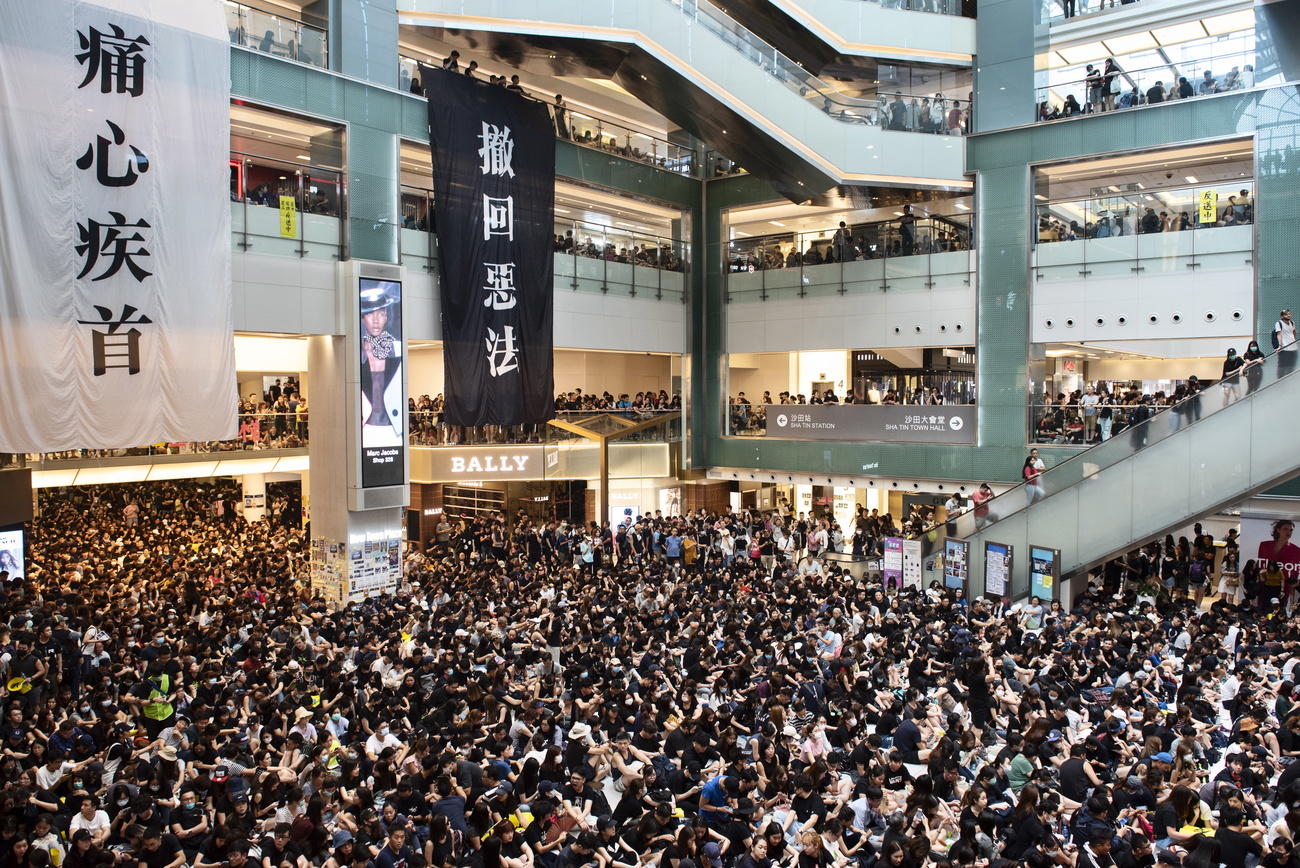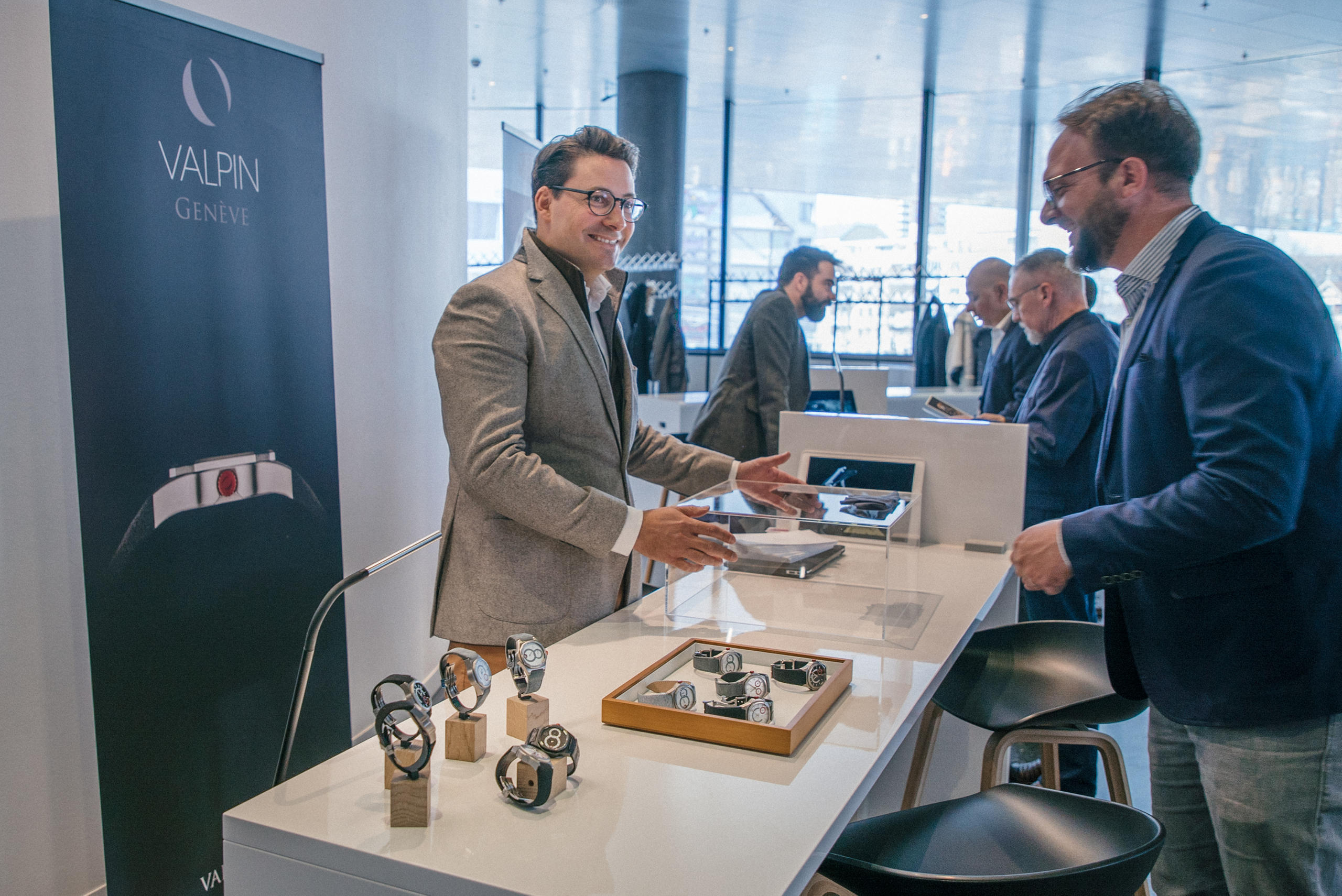Headwinds knock Swiss watchmakers’ growth expectations

The turbulence resulting from the pro-democracy protests in Hong Kong might have been shrugged off by Swiss horologists had it not come at such a transformational time for the watch industry.
Many manufacturers had been banking on 2019 as a year of calm, a time to recover after a challenging 2018.
Instead they face a situation where analyst estimates point to a fall from 4% global growth to near zero, and a longer-term contraction in their largest market of up to 40%.

The traditionally conservative Swiss industry is struggling with two linked structural trends. The first is a shift to direct retail operations to try to improve margin and inventory management, and control branding.
The second is the need to accommodate the growing resale market in Swiss watches in the age of ecommerce. In recent years, Richemont brands Cartier, IWC and Jaeger-LeCoultre have all had to buy back stock from retailers to support pricing, for instance.
Yet the move to direct selling, away from traditional multi-brand retailers such as Watches of Switzerland and Bucherer, has been far from smooth.
The Swiss makers’ attempt to reduce the number of points of sale through which their products are available has been a slow process.
IWC now has about 100 shops but few are particularly profitable, say analysts. Limiting production is another way to control availability but that is seen as a drastic option.
“We cannot say that the problem has been solved but at least the brands have started to work on that and the impact is being seen,” says René Weber, an analyst at Switzerland’s Vontobel bank.
The pre-owned and grey market, in which genuine watches are sold by unofficial vendors, are also irritations that watchmakers can no longer ignore. The grey market, for example, often commands higher prices for coveted timepieces: a Patek Philippe Nautilus can be acquired immediately for CHF55,000 ($55,400) via an online vendor, compared with CHF26,000 and a five-year wait through a Patek store.
The travails of Baselworld, the annual Swiss flagship fair for watchmakers, serve to illustrate the industry’s repositioning efforts. The show has suffered a heavy fall in exhibitor numbers in the past two years, with Swatch Group’s exit the most notable, and this has forced organisers to overhaul their offering.
Yet while they insist this is a transitional period for the show and the wider industry, for many it remains unclear what this means for next year and beyond.
Disruptions in the Asian market
One area of consensus, at least, is the growing importance of the Asian market, which has been buffeted by the protests in Hong Kong, previously luxury watches’ biggest market.
The territory’s high-end International Finance Centre (IFC) mall has enough luxury Swiss watches on display to rival the ateliers of Geneva’s Rue du Rhône or Zürich’s Bahnhofstrasse.
This single shopping complex, featuring boutiques from IWC, Rolex, Jaeger-LeCoultre and Vacheron Constantin, among others, is indicative of the city as a whole. Audemars Piguet has seven outlets in the archipelago, and four in nearby Macau. This compares with its seven shops across North America.

More
Swiss companies keep watchful eye on Hong Kong protests
So it has been with consternation that Switzerland’s watchmakers have seen Hong Kong descend into political chaos in recent months, as protesters push back against what they view as Beijing’s tightening grip on the territory.
The IFC mall has become a regular venue for flash mobs of both pro-democracy and pro-Beijing protesters. Hong Kong’s airport — home to another cluster of watch outlets, including Blancpain, Omega and Longines — has been severely disrupted.
Until the protests began, Hong Kong was the world centre for Swiss watch sales. In 2018, it powered more than CHF3bn ($3.04bn) of the CHF21bn in global sales, and was behind much of the industry’s growth that year.
“Asia is the first market for our industry,” says Jean-Daniel Pasche, president of the Federation of the Swiss Watch Industry. “More than 50% of our exports are destined [to go] there. The events in Hong Kong duly affect our business.”
So far, Mr Pasche notes, the numbers as a whole for the region have held up reasonably well. While September exports to Asia rose 11.3%t year-on-year to CHF943m, the figure for Hong Kong fell 4.6%. Other Asian countries, among them China, Japan and Singapore, appear to have taken up some of the slack, with imports rising in all three markets.
Many Chinese consumers buy their watches overseas. While trouble in Hong Kong has led shoppers to abandon that market, South Korea and Japan remain attractive places to shop — as is increasingly the Chinese mainland.
Export effects
Other observers are less sanguine, however. High inventories in Hong Kong mean the effect of political turbulence has not yet been fully reflected in export numbers from Switzerland — in other words exports have yet to translate into sales and are less likely to do so if disruption continues. Mr Weber believes the Hong Kong market could contract by as much as 40 per cent.
In the event of such a drop, the global outlook would be affected significantly. Earlier forecasts anticipated 4% growth for Swiss watch exports overall this year — Mr Weber says the true figure could now drop to between 1% and zero.
In 2014, the city endured similar unrest. “The last crisis saw declines of roughly 30% and that did not last as long as this one,” Mr Weber says, adding retail sales figures do not bode well.
Provisional data released this month by Hong Kong’s statistics department for September show that the sales by value of jewellery, watches and clocks, and valuable gifts plummeted 40.8% year on year, following a 47% drop in August.
Luxury watch brands will be watching the data closely over the next couple of months as the severity of the situation comes into view.
Copyright The Financial Times Limited 2019

In compliance with the JTI standards
More: SWI swissinfo.ch certified by the Journalism Trust Initiative











You can find an overview of ongoing debates with our journalists here . Please join us!
If you want to start a conversation about a topic raised in this article or want to report factual errors, email us at english@swissinfo.ch.